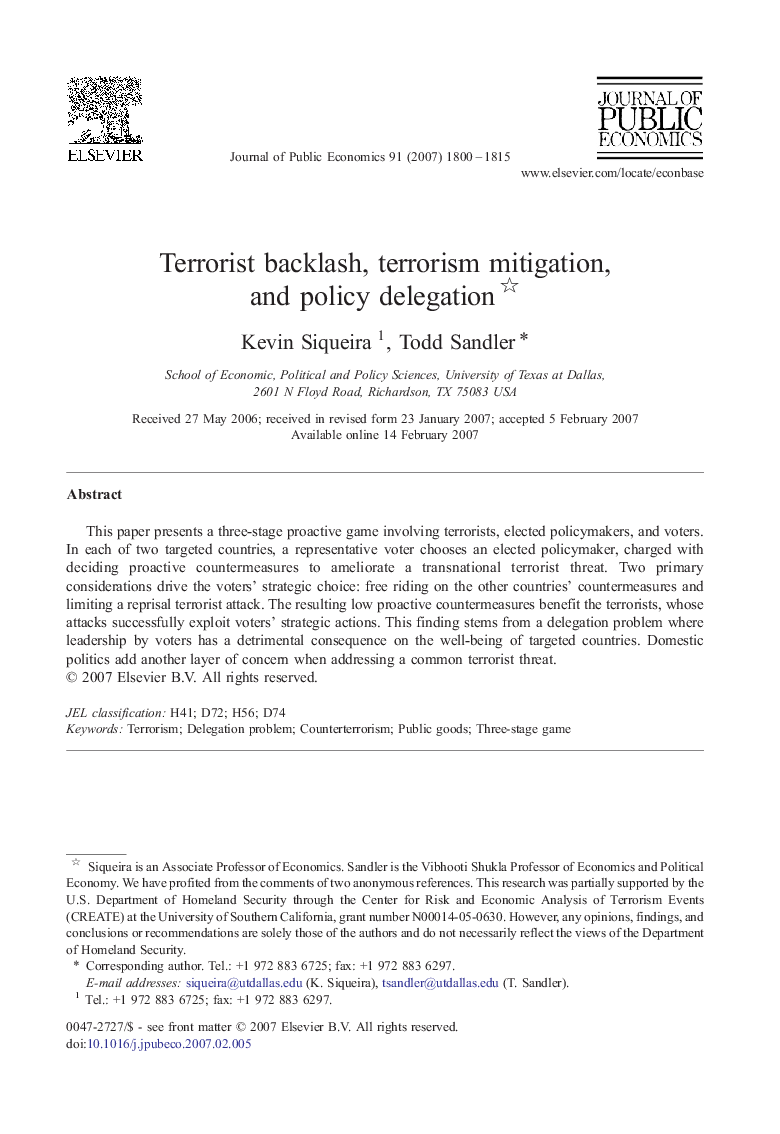| Article ID | Journal | Published Year | Pages | File Type |
|---|---|---|---|---|
| 970317 | Journal of Public Economics | 2007 | 16 Pages |
This paper presents a three-stage proactive game involving terrorists, elected policymakers, and voters. In each of two targeted countries, a representative voter chooses an elected policymaker, charged with deciding proactive countermeasures to ameliorate a transnational terrorist threat. Two primary considerations drive the voters' strategic choice: free riding on the other countries' countermeasures and limiting a reprisal terrorist attack. The resulting low proactive countermeasures benefit the terrorists, whose attacks successfully exploit voters' strategic actions. This finding stems from a delegation problem where leadership by voters has a detrimental consequence on the well-being of targeted countries. Domestic politics add another layer of concern when addressing a common terrorist threat.
